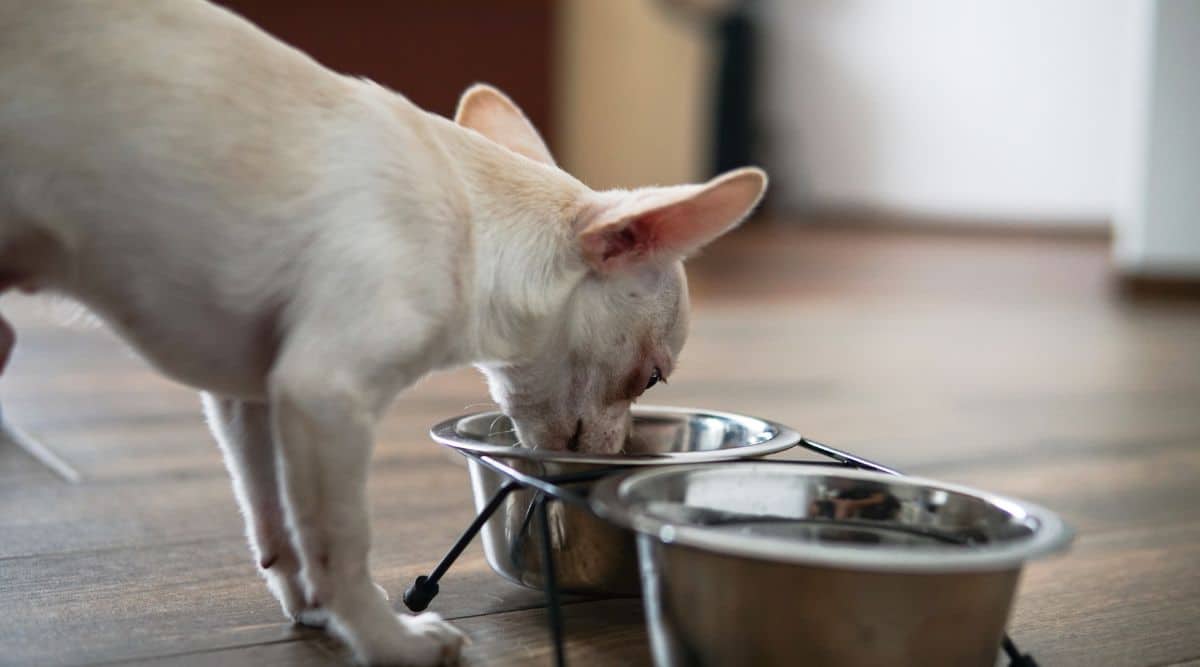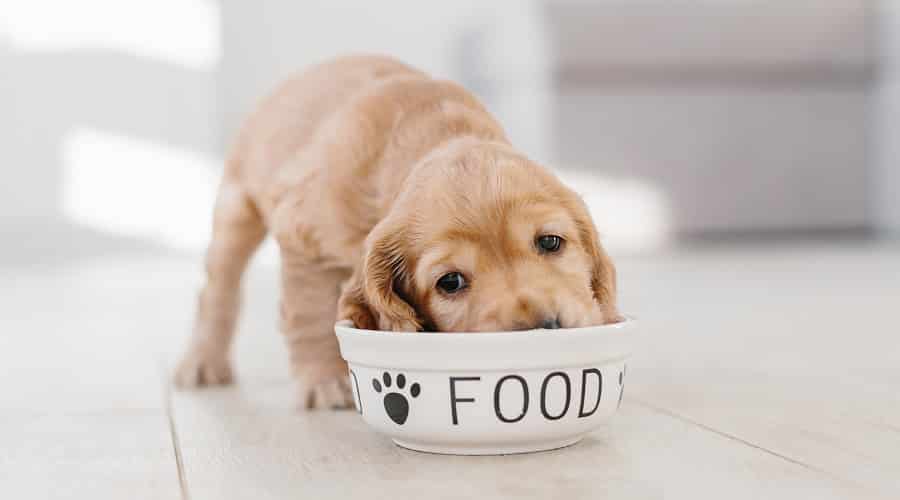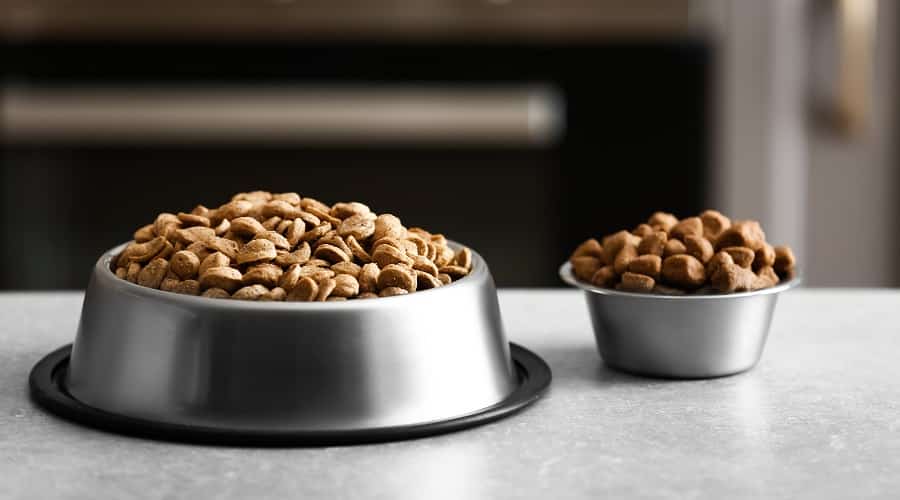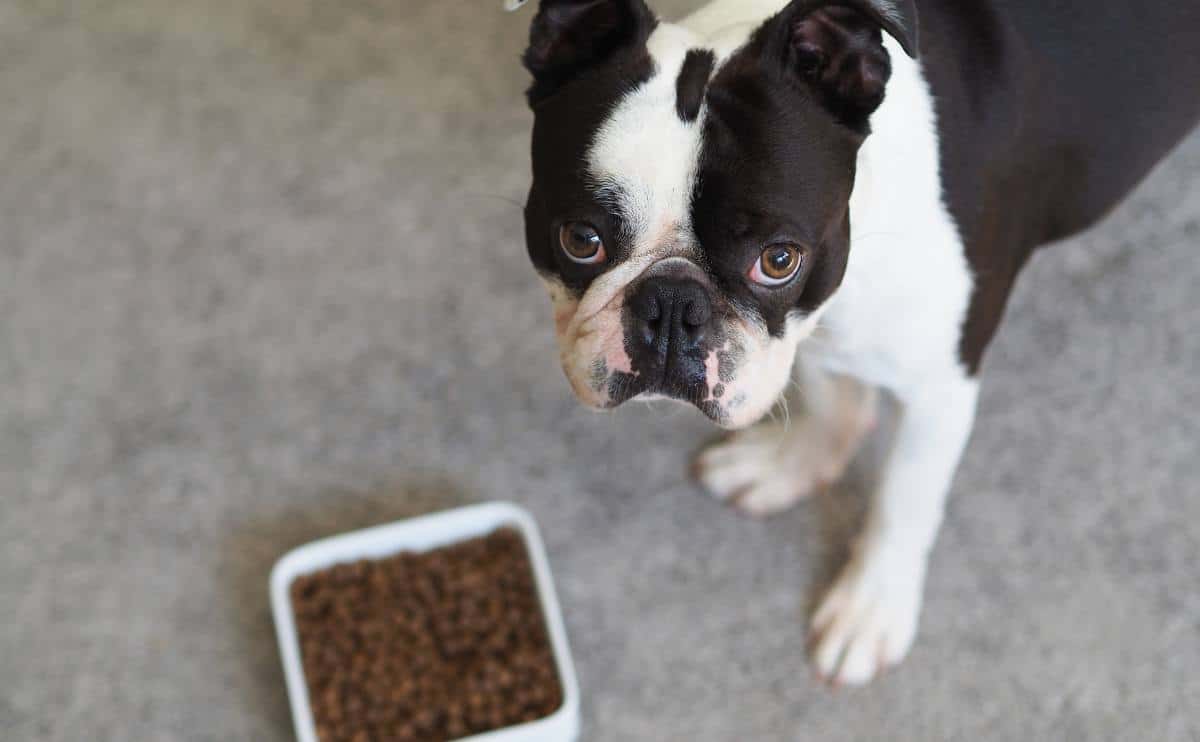Foods That Could Kill Your Dog (And the Ones That Just Wreck Their Stomach)
When you purchase through links on our site, we may earn a commission. Here’s how it works.
Your dog can survive eating trash and dead squirrels. But a handful of grapes? That’s the real threat.
Table of Contents
Dogs have a reputation for iron stomachs, able to scarf down the most questionable snacks without missing a beat. But when it comes to certain kitchen staples, even a small bite can be dangerous.
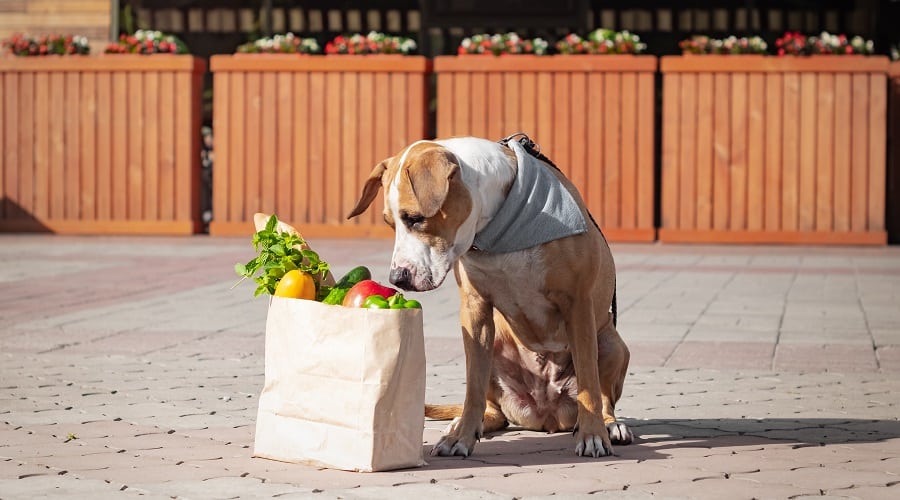
Plenty of everyday foods (even the “healthy” ones) can shut down your dog’s kidneys, damage their liver, or worse. This list could save you thousands and possibly your pup’s life.
7 Fatal Foods: These Can Kill Dogs In Just One Bite
Some foods aren’t just “bad” for dogs—they’re deadly. And unlike treats that cause mild tummy trouble, the items below can trigger life-threatening symptoms, even in small amounts.
Whether your dog is a 5-pound Yorkie or a 90-pound Lab, these are the foods that could land you at the emergency vet before symptoms even show.
1. Xylitol (Sugar-Free Sweetener)
It’s the sweetener that could drop your dog in minutes. Xylitol triggers a massive insulin release, causing a rapid, dangerous crash in blood sugar, sometimes from a dose as tiny as 0.03 grams per kilogram (about 0.0005 ounces per pound of body weight).
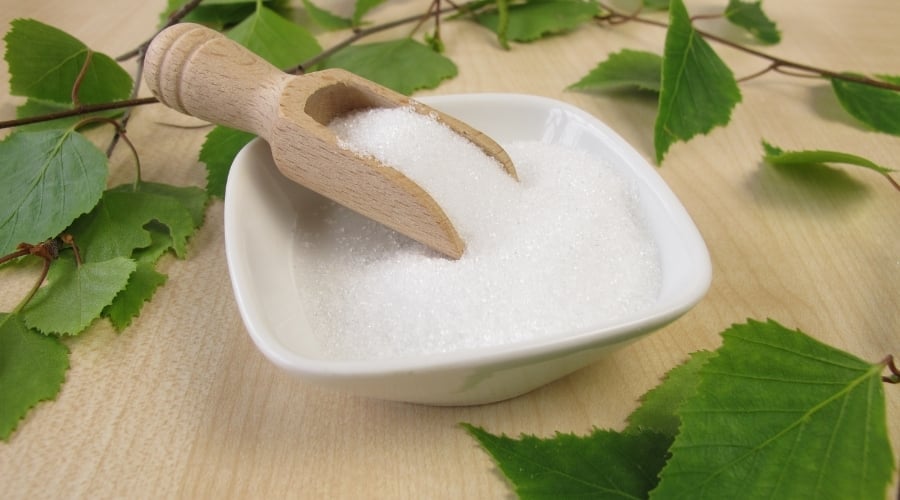
Xylitol can also damage the liver, sometimes leading to acute liver failure.
Vomiting is usually the first sign of toxicity. Then come the low-blood-sugar symptoms—weakness, stumbling, collapse, or seizures—sometimes within 30–60 minutes, or up to 12 hours later. Liver damage can take hours or days to show.
In one study of 192 dogs who ingested xylitol, 20% developed symptoms—mostly vomiting and lethargy—while 15.6% became hypoglycemic. Severity didn’t always match the dose, which is why any amount is an emergency.
- Hidden sources include: sugar-free gum, mints, candies, baked goods, protein bars, some brands of peanut butter, sugar-free drink mixes, and even certain prescription medications.
- What to do: Get your dog to the vet immediately. Xylitol poisoning can progress quickly, so don’t wait for symptoms. Your vet will monitor blood sugar, give IV glucose, and check for liver damage.
2. Grapes & Raisins (Also Sultanas, Currants & Grape Juice)
The internet debates it. Vets don’t. Grapes and raisins are severely toxic to dogs and can cause sudden kidney failure, even in small amounts.
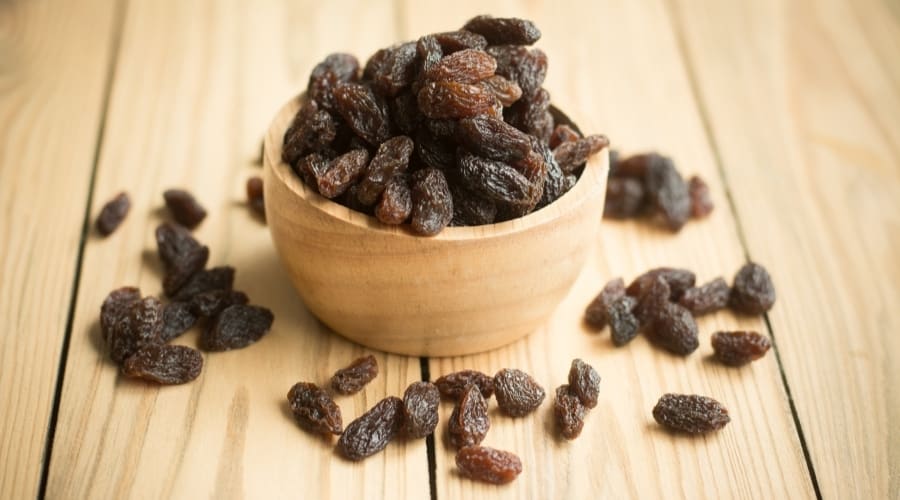
Tartaric acid is now the prime suspect, a compound also found in tamarind and cream of tartar, both linked to the same kind of kidney injury in dogs.
The scary part? Sensitivity is wildly unpredictable. One dog may eat a handful and crash into renal failure. Another might down a whole bag and walk away fine.
Published case reports show renal failure from as few as four or five grapes. Some dogs survived nearly two pounds of raisins; another died from just a handful. Every ingestion is an emergency because you don’t know which way it will go.
- Hidden sources include: trail mix, raisin bread, oatmeal cookies, granola bars, fruitcake, and grape juice.
- What to do: Get your dog to the vet. Vomiting often starts within 24 hours, followed by lethargy, anorexia, and abdominal pain. IV fluids are critical for at least 48 to 72 hours, with close kidney monitoring throughout.
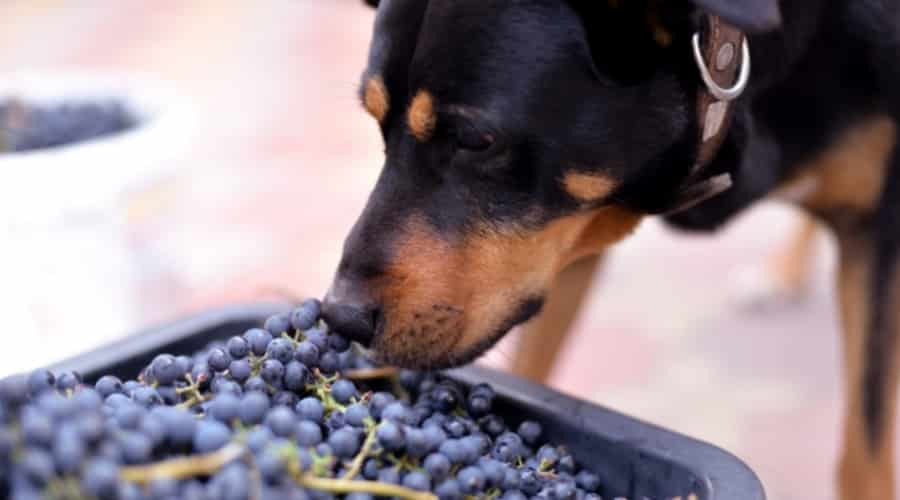
“I Gave My Dog Grapes—Here’s What Happened”
Here’s a cautionary tale from Kathy Solarino, who experienced the dangers of dogs ingesting grapes first-hand.
I was babysitting my son David’s dog, Jack, a Jack Russel Terrier mix. I loved that little guy, and he was so much fun.
This happened some years ago. It was a Saturday afternoon, and I was talking to my sister on the phone, munching on grapes. Jack was staring at me, so I threw him one, and he leaped in the air to catch it.
As I continued to talk and eat, I occasionally tossed Jack a grape, delighting in his “circus dog” antics. I happened to mention to my sister how funny he was jumping to catch the grapes, and she quickly told me grapes were deadly for dogs.
I panicked, hung up the phone, and looked for the number of the Animal Poison Control. I called and found that to receive any help, I would first need to “donate” a certain amount of money. I scrambled to get my credit card, gave the money, and finally got someone on the line.
They told me that they were unsure if it was the skin, pulp, or seeds of the grapes that caused the problem; it didn’t seem to matter if the grapes were white, red, or purple, and they were unsure why it did not affect some dogs and killed others. They instructed me to force Jack to vomit by giving him a saucer of milk with peroxide in it.
I was told if all the grapes did not come up, I needed to take him to a vet. I asked if I could wait to see if he seemed sick, and they said it would be too late to save him by then.
Jack immediately began vomiting all over the house, and I followed behind him, trying to count chewed-up grapes, only to realize that I wasn’t even sure of the number of grapes I had actually given him. So off we went to the nearest emergency vet that was open.
I was frantic! I knew that if anything happened to Jack, my son would never forgive me.
The vet advised me there was no way to know if Jack would react to the grapes, so he would need intravenous fluids to flush his kidneys through the night and the next day. Poor Jack and poor me, that mistake cost me $800, but at least Jack was fine and returned to his old self.
3. Chocolate (Also Cocoa Powder, Cacao Mulch & Some Supplements)
It doesn’t take much chocolate to cause serious trouble for a dog. The toxic components, theobromine and caffeine, are far more dangerous to dogs than to humans.
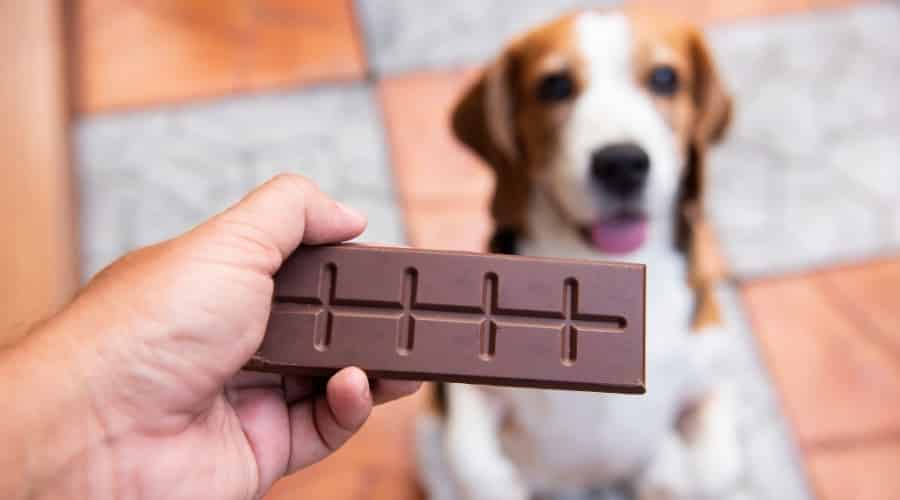
According to ASPCA Animal Poison Control Center data, mild signs like vomiting, diarrhea, and restlessness can appear after as little as 0.00032 ounces per pound of body weight. At 0.00072 ounces per pound, severe signs like tremors and abnormal heart rhythms are more likely. Seizures can occur at doses of about 0.00096 ounces per pound.
Toxicity risk also varies by chocolate type:
- Milk chocolate: Less than 1 ounce per pound of body weight (about 2 oz/kg) can be potentially lethal.
- Unsweetened baking chocolate: Less than 0.1 ounce per pound (about 0.2 oz/kg) can be potentially lethal.
- Dark/semi-sweet chocolate: Falls between milk and baking chocolate in danger level.
- White chocolate: Not a theobromine threat, but the fat and sugar can still cause digestive upset or pancreatitis.
It’s not just candy bars. Hidden sources include: cocoa powder in baked goods, hot cocoa mix, chocolate-covered espresso beans, herbal supplements containing guarana, and even mulch made from cacao bean shells.
- What to watch for: vomiting, diarrhea, restlessness, panting, increased heart rate, and muscle tremors. Severe cases may involve high blood pressure, irregular heartbeats, seizures, coma, or death from cardiac or respiratory failure.
- What to do: Call your vet or a poison hotline immediately. Even small amounts should be treated seriously, especially in small breeds. Early care can prevent life-threatening complications.
4. Alliums (Onions, Garlic, Leeks & Chives)
They may smell amazing in your kitchen, but they’re poison to your dog. All plants in the allium family can damage red blood cells and cause a dangerous type of anemia, especially with repeated exposure. Powdered forms, like garlic powder and onion soup mix, are even more concentrated.
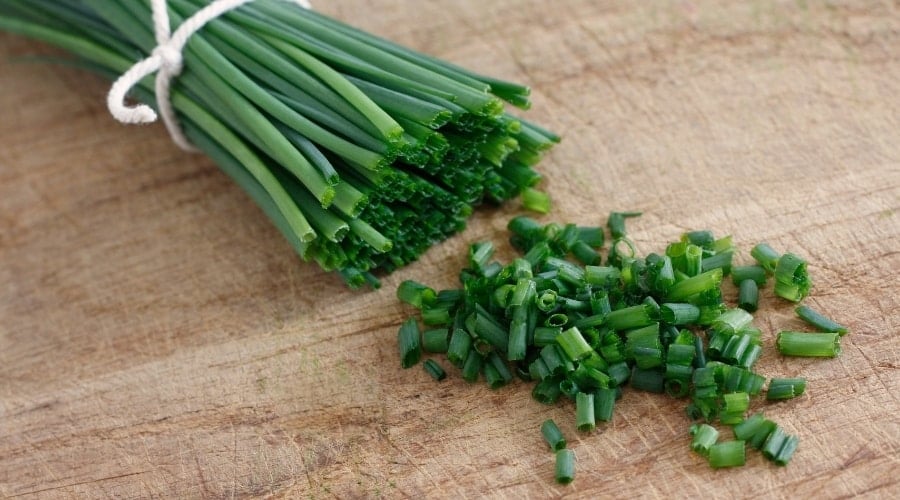
A little seasoning on a chip isn’t likely to cause harm, but repeated or high-dose exposure can be dangerous. Similarly, a nibble of garlic bread probably isn’t a big deal, but if your pup steals the whole loaf, a vet visit is warranted.
Cooking or drying doesn’t make them safer. The toxic compounds—organosulfoxides—remain active in all forms.
Symptoms don’t always show up right away. Vomiting, diarrhea, and abdominal pain may appear within the first day, but signs of anemia can take several days to develop.
As red blood cells break down, dogs may become weak, breathe rapidly, or show signs of jaundice. Their urine may turn reddish or brown, a warning sign of hemoglobin in the urine.
Ingestion of approximately 1¾ ounces of onion per 10 lb of body weight (or about 0.5 percent of body weight) may be enough to cause red blood cell damage. That’s roughly the amount in one small onion for a 10-pound dog.
- What to do: If your dog ate a known quantity recently and symptoms haven’t started, your vet may induce vomiting—ideally within 2 hours. Bloodwork and supportive care are critical if anemia has already set in.
Real Case: A Miniature Schnauzer developed severe hemolytic anemia after eating Chinese dumplings stuffed with garlic and chives. Two days later, he was rushed to the vet showing signs of red blood cell destruction and needed urgent care.
5. Hops (Humulus Lupulus)
Home brewers, beware—hops can send your dog’s body temperature soaring over 107°F, a condition called malignant hyperthermia. Symptoms often start within hours: restlessness, panting, seizures, and even sudden death.
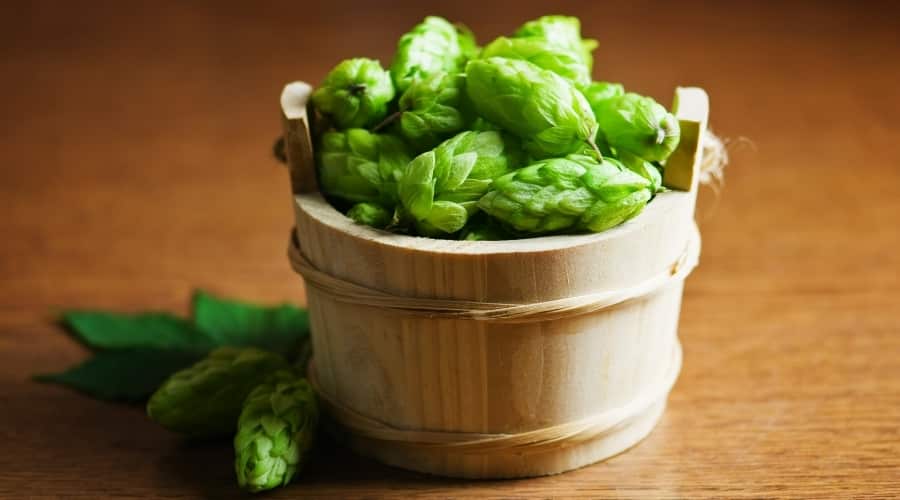
Even small amounts can cause life-threatening hyperthermia. Symptoms often begin quickly: restlessness, panting, rapid heartbeat, vomiting, abdominal pain, dark brown urine (from muscle breakdown), seizures, and collapse.
Any dog can be affected, but certain breeds—Greyhounds, Labrador Retrievers, Saint Bernards, Pointers, Dobermans, Border Collies, English Springer Spaniels, and Arctic breeds—are especially vulnerable.
- Hidden sources include: brewing hops, spent hops from brewing, and compost containing hops.
- What to do: This is a drop-everything emergency. Get your dog to the vet immediately. Rapid cooling, IV fluids, and drugs to control temperature are critical for survival.
6. Ethanol (Alcohol, Fermented Foods & Raw Yeast Dough)
One sip of beer to “be funny” isn’t funny at all—alcohol hits dogs much harder than it hits us. And it’s not just drinks. Rotten fruit, yeast dough rising in the stomach, even certain sauces can cause vomiting, tremors, and fatal respiratory failure.
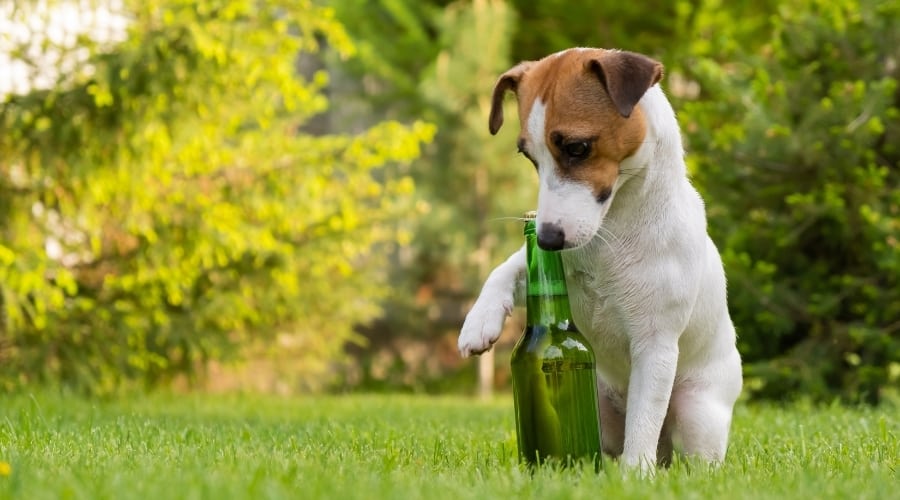
Dogs are far more sensitive to ethanol than humans. Even small amounts can cause central nervous system depression, dangerously low body temperature, metabolic acidosis, and, in severe cases, coma or death.
Ethanol poisoning often comes from beer, wine, or liquor, but there are sneakier sources: rotten apples, fermented fruits, sloe gin berries, and—one of the most dangerous—raw, rising dough. The yeast ferments inside the stomach, producing carbon dioxide and ethanol, leading to life-threatening bloat and alcohol poisoning at the same time.
Symptoms may appear within an hour: vomiting, lethargy, disorientation, loss of coordination, tremors, slowed breathing, and a swollen abdomen. Without rapid care, coma and death are possible.
- Hidden sources include: alcoholic drinks, cooking wines, fermented fruit, sloe gin berries, raw bread or pizza dough, and uncooked pastries.
- What to do: This is always an emergency. If your dog ate raw dough or ingested alcohol, get to the vet immediately. Treatment may include gastric decompression (for bloat), IV fluids, and intensive monitoring until alcohol is cleared from the system.
7. Macadamia Nuts
They’re not the deadliest on this list, but they pack a toxic punch. Even a small handful of macadamia nuts can leave a dog weak, wobbly, and miserable for days.
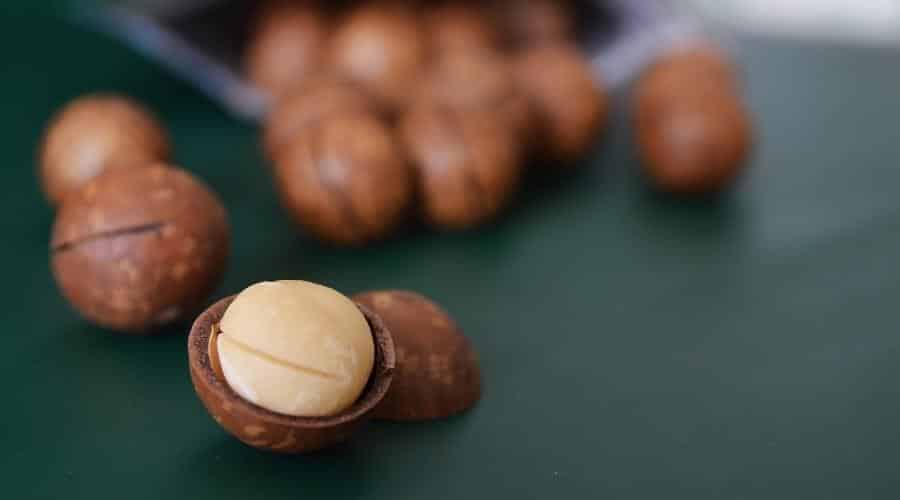
Research shows that as little as 0.011 ounces per pound of body weight can cause symptoms, though reported toxic doses have ranged much higher. Symptoms typically start within 12 hours and may include vomiting, hind-leg weakness, tremors, difficulty walking, and fever.
While no deaths have been reported, affected dogs may be unable to stand or walk for up to two days. Most recover fully within 24–48 hours with supportive care.
- Hidden sources include: cookies, cakes, candy, trail mix, granola bars, and nut butters.
- What to do: Contact your vet. Most cases require monitoring and symptomatic treatment until the dog regains strength.
4 Foods That Cause Long-Term Damage (Even If They Don’t Kill)
Some dogs have stomachs of steel. Others explode over a bite of buttered toast.
The truth? Many human foods won’t kill your dog instantly, but they can still cause vomiting, diarrhea, pancreatitis, or chronic health issues over time. Just because your dog ate it once and seemed fine doesn’t mean it’s safe.
Here are the types of foods that fall into the “they’ll eat it, but they shouldn’t” category.
1. Cheese & Dairy
Most dogs love cheese. But not all dogs digest dairy well, and high-fat cheeses like brie, gouda, or blue cheese can trigger an upset stomach or even pancreatitis. This painful condition often requires hospitalization.
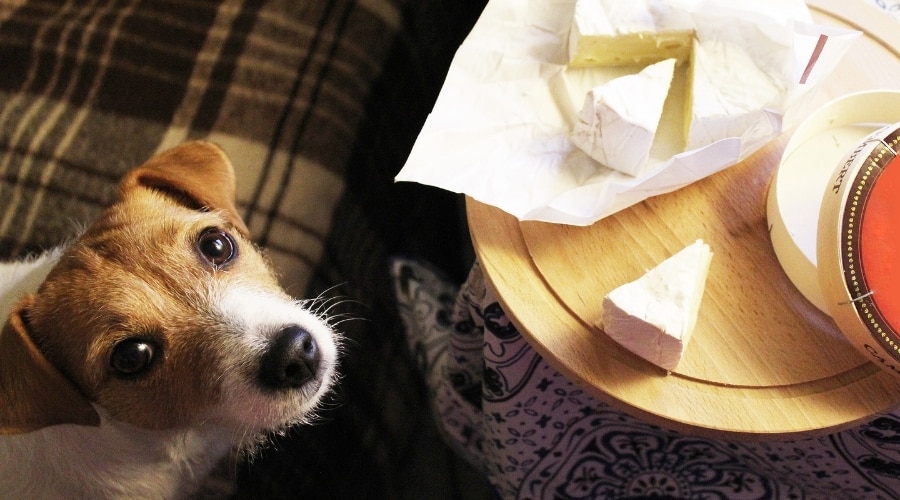
Lactose intolerance is another common issue. Ice cream and whipped cream may look cute in videos, but they can lead to bloating, gas, or sudden accidents you’d rather not clean up.
Our Personal Experience: The Great Blue Cheese Incident
One festive evening, my husband decided to share a tiny treat from our holiday cheese board with our dog, Bonkers. Specifically? Blue cheese. Yes, blue cheese.
Why he thought feeding moldy cheese to a dog was a good idea, I’ll never know. But I do know he hasn’t done it since.
Let’s just say Bonkers did not handle it well. By the next morning, our flat looked like it had been attacked by a dairy-based paintball gun.
For a solid 24 hours, Bonkers was a one-dog blue cheese explosion. It was coming out of him faster than we could clean it up.
Thankfully, we kept him hydrated, and apart from the digestive disaster zone happening out his back end, he seemed his usual cheerful self. But the trauma? Oh, the trauma.
Note to my husband (and to anyone reading): cheese boards, especially the mouldy kind, are for humans. Not dogs. Never dogs.
– Emma Braby, Survivor of One Blue Cheese Disaster & Writer At Canine Journal
2. Greasy Table Scraps & Holiday Leftovers
We get it. Dogs beg. And when the turkey’s carved, the gravy’s flowing, and everyone’s loosening their belts, slipping your pup a bite of something delicious feels harmless.
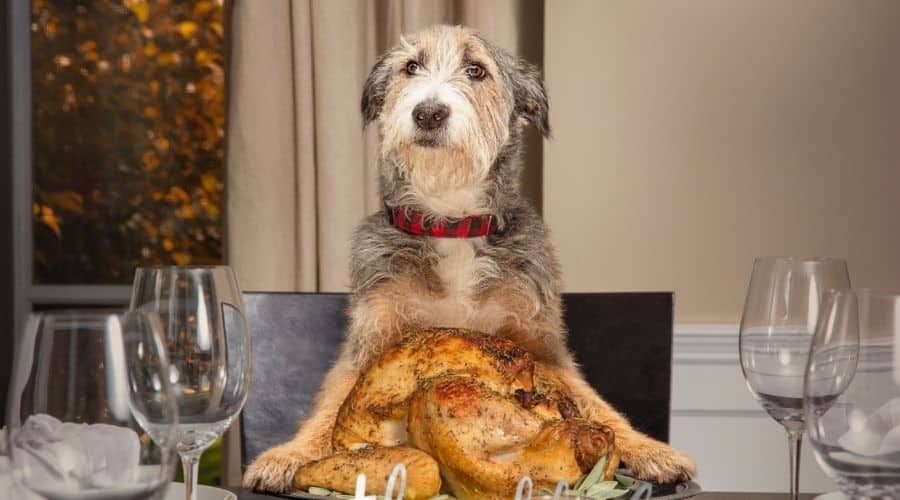
But fat trimmings, chicken skin, bacon grease, and heavy gravies are common triggers for pancreatitis. The pancreas helps dogs digest fat, and when overwhelmed, it becomes inflamed and painful. Symptoms include vomiting, abdominal pain, lethargy, and refusal to eat.
3. Processed Meats
Bacon, sausage, hot dogs, ham, and other processed meats pack a one-two punch of fat and salt—both of which can cause long-term harm to your dog’s pancreas and kidneys. A single slice may not hurt, but repeated exposure increases the risk of pancreatitis, dehydration, chronic illness, and obesity.
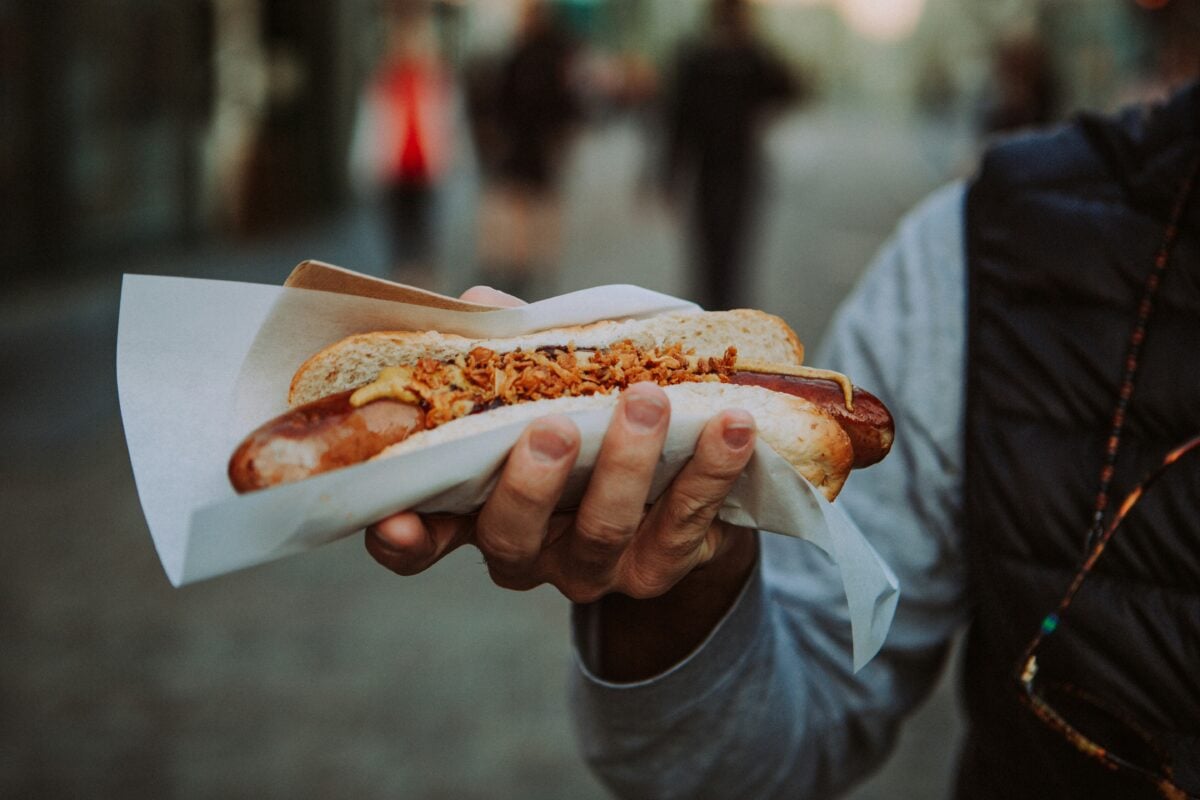
Processed meats are also classified as carcinogenic to humans by the World Health Organization—and likely pose similar risks to pets.
4. Junk Food & Sweet Treats
It’s not just the sugar or grease. Many baked goods and snacks contain hidden ingredients that are dangerous, including chocolate, raisins, xylitol, macadamia nuts, or too much salt.
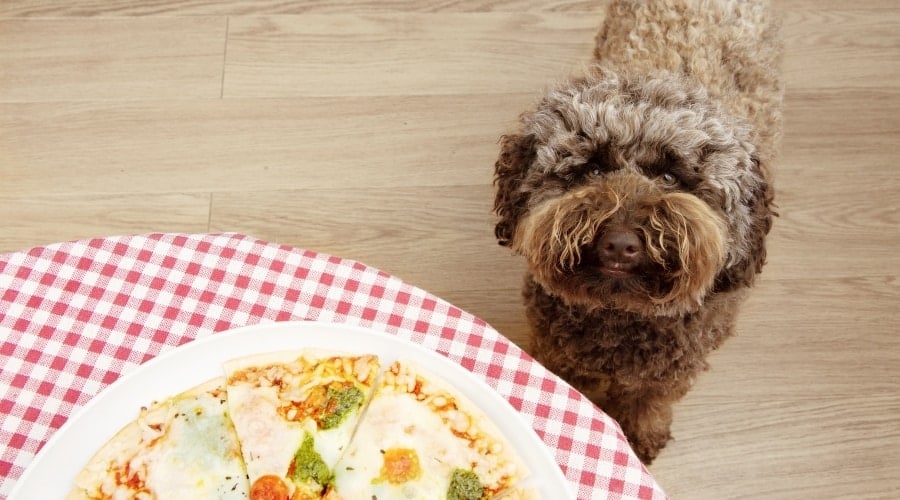
Even “plain” cookies, frosting, or pizza can be risky. Pizza in particular is a combo offender: cheese, grease, garlic, onion, and processed meats—all in one floppy triangle.
If it’s not made for dogs, don’t let it become a habit. These foods pack unnecessary calories that can push a healthy weight into obesity territory, along with increasing the risk of dental disease, arthritis, and diabetes over time.
Why Obesity Matters
Extra weight is more than “a few pounds.” Obesity increases the risk of arthritis, heart disease, diabetes, breathing problems, and certain cancers.
The sneaky part? Many “harmless” human foods are calorie bombs for dogs. A slice of bacon to you is like a double cheeseburger to them.
6 Surprisingly Dangerous “Healthy” Foods
You eat them. You probably feel great about it. But when it comes to dogs, some of the most wholesome-seeming foods can cause serious problems.
From plant-based superfoods to fresh produce, these “good for you” ingredients can trigger everything from vomiting to kidney failure.
1. Avocado
Avocados contain persin, a natural toxin that can cause stomach upset in dogs. The flesh is fatty and may trigger pancreatitis in sensitive pups.
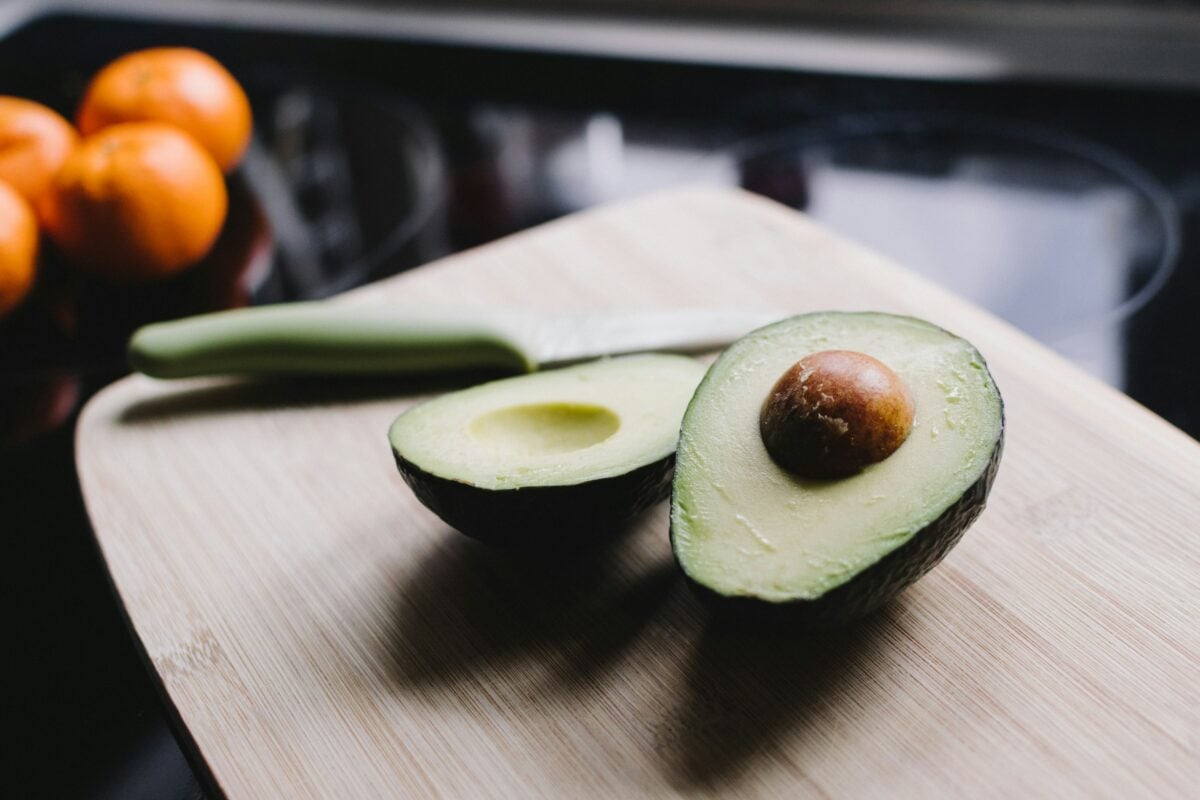
The most significant danger is the pit. If swallowed, it can block the intestines and often requires surgery.
Also risky: guacamole, which usually includes garlic, onions, and salt.
2. Citrus Fruits
Lemons, limes, and grapefruits contain citric acid and essential oils that can irritate your dog’s stomach and GI system.

While a lick may not hurt, larger amounts can cause vomiting, diarrhea, or even depression of the nervous system.
Avoid: citrus peels, juice, and pulp.
3. Raw Potatoes (Especially Green or Sprouted Ones)
Raw potatoes contain solanine, a compound that’s toxic to dogs and can cause nausea, confusion, and slowed heart rate. Green or sprouted potatoes are especially dangerous.

Cooked plain potatoes are generally safe in moderation, but keep your pup out of the pantry.
4. Raw Beans (Especially Red Kidney Beans)
Uncooked beans contain lectins, which can be toxic to dogs. Even small amounts of undercooked red kidney beans can cause vomiting, diarrhea, and abdominal pain.
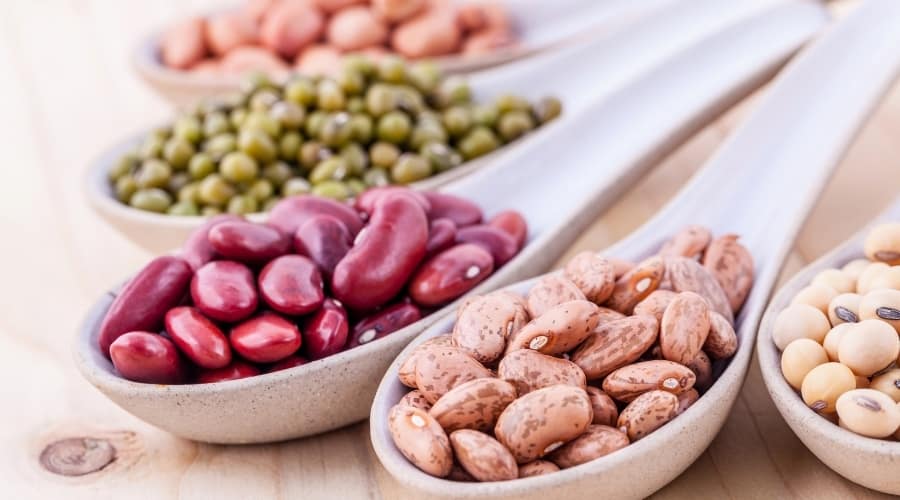
Fully cooked beans (like plain black beans or chickpeas) are much safer.
5. Unripe Tomatoes & Tomato Plants
Ripe red tomatoes are usually safe in small amounts, but green ones and the plant’s leaves and stems contain solanine, a compound that can be toxic to dogs. Symptoms include lethargy, drooling, vomiting, and weakness.
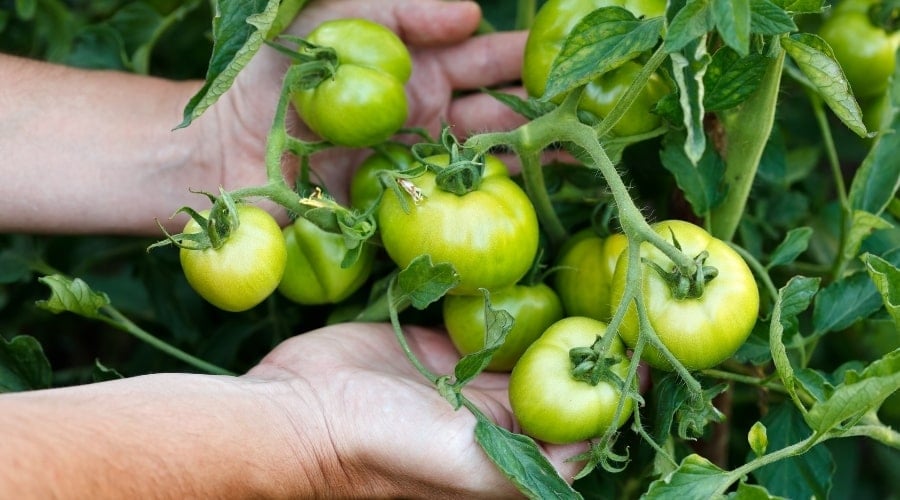
If you have a garden, fence it off. Learn more tips for dog-proofing your garden beds.
6. Wild Mushrooms
The problem isn’t just toxicity, it’s identification. Some wild mushrooms are harmless, others are deadly, and many look nearly identical.

Toxic mushrooms can cause severe vomiting, liver failure, seizures, and death. Rule of thumb: if it’s growing wild, don’t let your dog eat it.
Wait, That’s Toxic Too?
Some foods just don’t seem dangerous. No wild colors. No funky smells. But plenty of pantry staples can still hurt your dog.
- Nutmeg – Contains myristicin, which can cause tremors, confusion, hallucinations, and seizures if consumed in excess. Small amounts can cause digestive upset in dogs.
- Mustard Seeds & Powder – Irritate the gut lining, causing vomiting and stomach pain.
- Salt – Large amounts can cause salt poisoning, leading to vomiting, tremors, seizures, dehydration, and even death. Hidden sources include chips, pretzels, deli meat, broth, seasoning mixes, and some peanut butters.
- Coffee Grounds – Still contain enough caffeine to be dangerous.
- Baking Powder & Baking Soda – Harmless once baked, but dangerous in raw form.
Hidden Hazards: Foods That Can Block, Burst, or Poison
Some foods are dangerous because of what they do inside your dog, not just what’s in them.
- Cooked Bones – Unlike raw bones, cooked bones splinter easily. The shards can tear through the stomach or intestines, causing internal bleeding or infection.
- Corn on the Cob – Dogs tend to gulp it in big chunks, which can lodge in the gut and require emergency surgery.
- Moldy Foods & Nuts – Even small amounts can contain mycotoxins that attack the nervous system, causing tremors, seizures, or worse. Often found in compost, forgotten snacks, or spoiled pantry goods.
- Stone Fruit Pits (Cherries, Peaches, Plums) – The fruit is fine in moderation, but the pits can block the intestines, break teeth, or release cyanide if chewed.
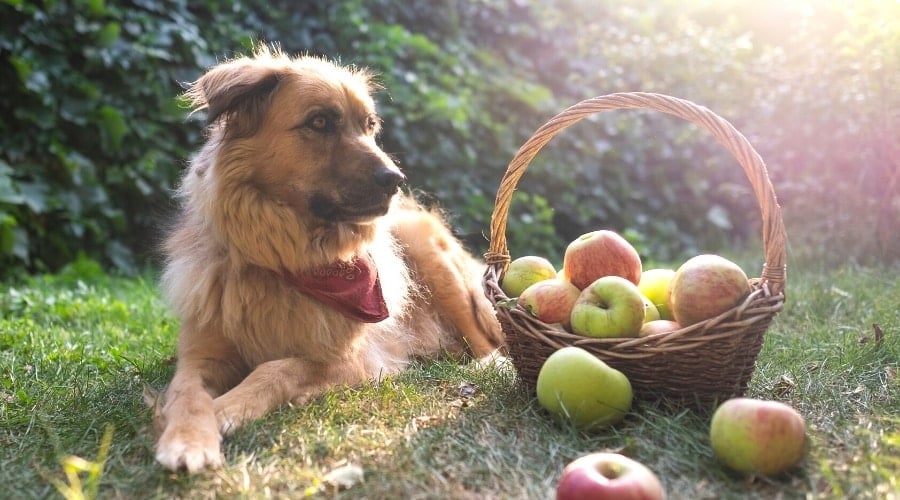
Note: Apple seeds also contain cyanide. A single seed likely won’t harm your dog, but chewing a handful might. Core fruit and remove all pits and seeds before sharing.
Risky Foods For Certain Health Conditions
Some foods aren’t outright poisonous to every dog, but they can cause serious problems for dogs with specific health issues. If your pup already has one of these conditions—or is at risk—these foods belong on the “never” list.
Diabetes Or Weight Management Issues (High-Glycemic Foods)
Foods that cause sharp blood sugar spikes, such as white bread, sugary treats, and sweetened peanut butter, can make diabetes harder to control and contribute to obesity. Stick to low-glycemic, vet-approved snacks.

Food Allergies Or Sensitivities
Chicken, beef, pork, and dairy are among the most common food-allergy culprits. Even small amounts can cause chronic itching, ear infections, or digestive distress. Once a trigger is identified, strict avoidance is the best solution.
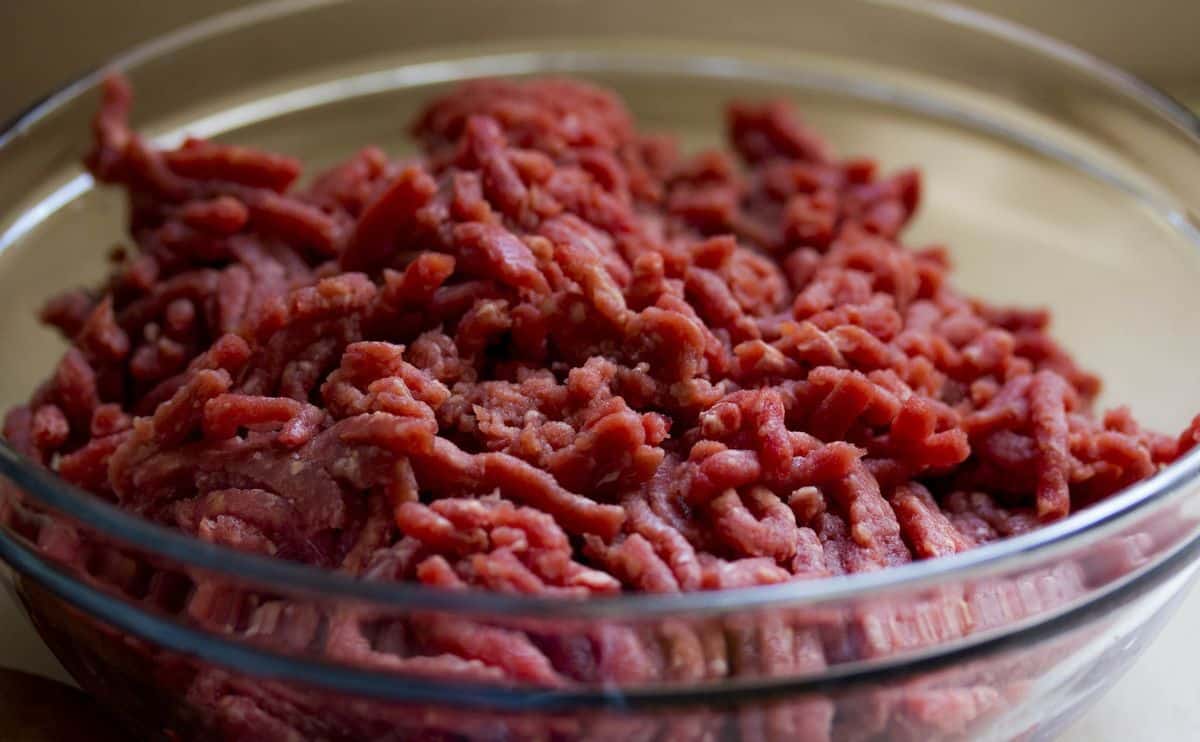
Heart Or Kidney Disease (High-Salt Foods)
Salt-heavy snacks—like chips, deli meat, bacon, and processed cheese—can worsen fluid retention and strain the heart and kidneys. Dogs on sodium-restricted diets should avoid these entirely.

Kidney Or Bladder Stones (Oxalate-Rich Foods)
Dogs prone to calcium oxalate stones should avoid foods high in oxalates, which can contribute to stone formation. Spinach, beets, and rhubarb leaves top the danger list.
While most healthy dogs can eat these occasionally without trouble, those with a history of stones should steer clear.
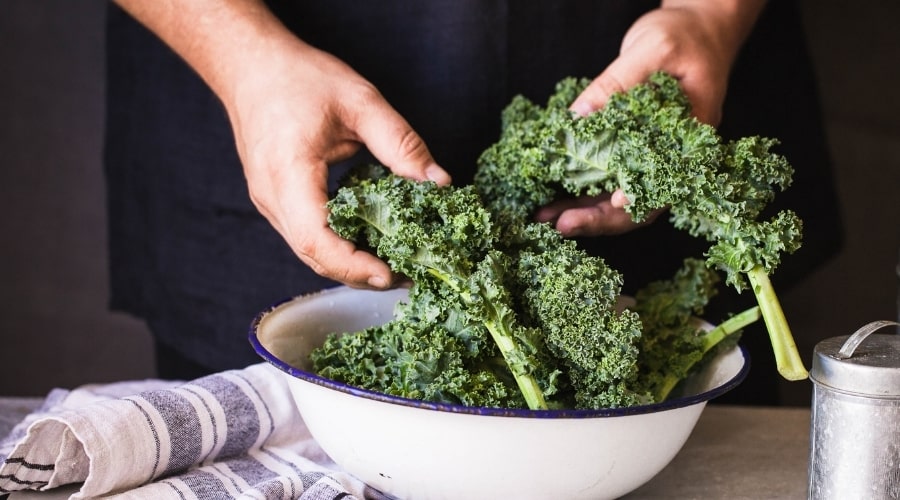
Pancreatitis (High-Fat Foods)
Dogs who have had pancreatitis are at a much higher risk of a flare-up after eating fatty foods like bacon, sausage, fatty cuts of meat, butter, cream, and fried foods. Even a small amount can trigger painful inflammation that may require hospitalization.
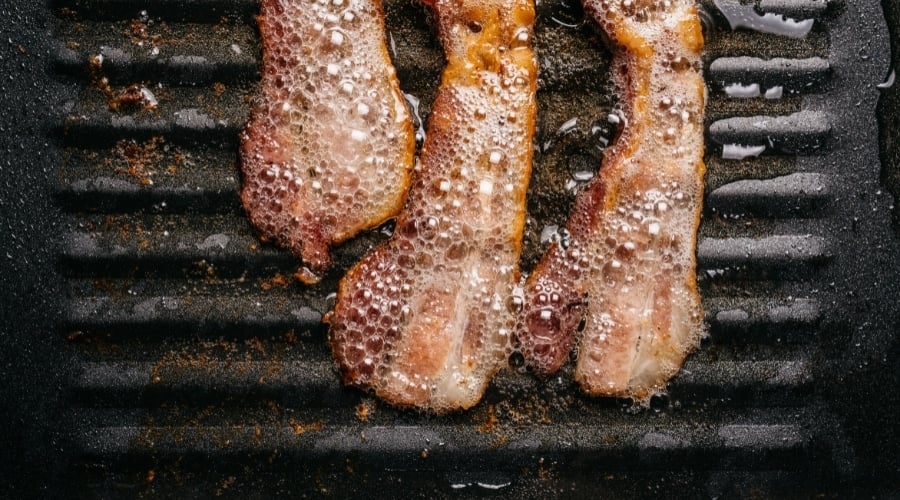
Thyroid Issues (Cruciferous Vegetables)
Raw broccoli, cauliflower, kale, Brussels sprouts, and similar veggies can interfere with thyroid hormone production if fed regularly. Light cooking helps reduce this risk, but for dogs with existing thyroid problems, it’s best to limit or avoid them entirely.

What To Do If Your Dog Eats Something Dangerous
Time matters. Many toxins cause the most damage in the first hours after ingestion, so acting fast can save your dog’s life.
1. Remove The Source
Get whatever they ate away from them. If it’s food scraps, sweep the area. If it’s a spill, wipe it up.
2. Call For Help Immediately
Call your vet or nearest emergency animal hospital. Give them:
- Your dog’s breed, age, and weight
- What they ate, how much, and when
- Any symptoms so far
You can also use one of these animal helplines:
- Pet Poison Helpline: 855-764-7661 (24/7, $89 fee)
- ASPCA Animal Poison Control: 888-426-4435 (24/7, $95 fee may apply)
3. Follow Instructions Exactly
Do not try home remedies like inducing vomiting unless told to by a vet or poison control; some toxins cause more harm coming back up.
4. Bring The Packaging Or Sample
If possible, bring the food, label, or a photo so vets know exactly what they’re dealing with.
Important: Symptoms can take hours to show. Waiting could mean the difference between a quick recovery and a life-threatening emergency.
Poison Prep Kit For Pet Owners
Keep these on hand so you’re ready if the worst happens:
- Contact numbers for your vet, the nearest 24-hour emergency clinic, and a poison control hotline (store in your phone and tape inside a cabinet).
- Digital scale to get an accurate weight for dosage or toxic dose estimates.
- Turkey baster or oral syringe for giving liquids if told to by a vet.
- Latex or nitrile gloves for handling contaminated vomit or waste.
- Zip-top bags to bring in samples (vomit, stool, food, or packaging).
- Flashlight to check the mouth or look for spills in dark areas.
Top Toxins That Need Immediate Vet Care
If your dog eats any of these, skip the “wait and see” and call your vet or poison control immediately.
- Alcohol & raw yeast dough – Causes bloat, respiratory failure, and coma.
- Choking hazards (pits, cobs, bones) – Can block the airway or intestines, often requiring surgery.
- Chocolate – Dark and baking chocolate are the most dangerous, but all types can be toxic.
- Grapes & raisins – Even a few can cause kidney failure.
- Macadamia nuts – Cause weakness, tremors, and fever even in small amounts.
- Onions & garlic – Damage red blood cells and can cause life-threatening anemia.
- Xylitol (in sugar-free gum, candy, peanut butter) – Can drop blood sugar within minutes and cause liver failure.
- Wild mushrooms – Some cause liver failure and death within hours.
Rule of paw: If it’s on this list, act fast. Waiting for symptoms can cost your dog their life.
Safe Treat Swaps for Dangerous Foods
Your dog doesn’t know the difference between “safe” and “sorry.” But you do.
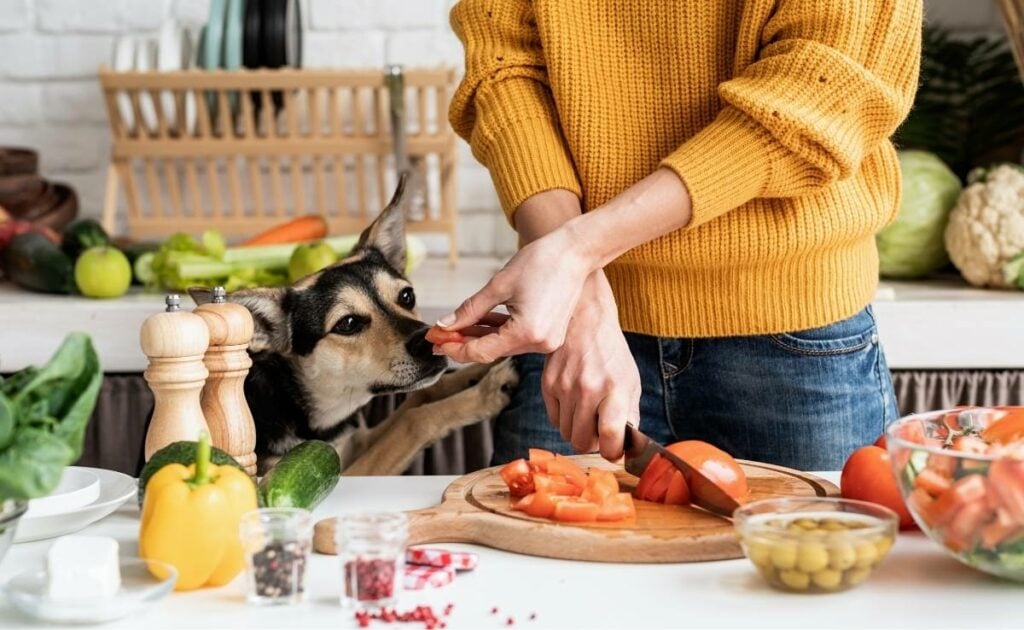
Here’s how to swap the most tempting but risky human foods for healthier options they’ll still love.
- Chocolate → Blueberries: Chocolate is toxic to dogs, but blueberries are packed with antioxidants and totally safe. Freeze them for a crunchy treat.
- Grapes & Raisins → Seedless Watermelon: Grapes and raisins can cause kidney failure, but watermelon is hydrating and sweet without the danger. Skip the rind and seeds.
- Greasy Table Scraps → Cooked Green Beans: Instead of fatty leftovers that can cause pancreatitis, try plain green beans. They’re filling and low-calorie.
- Bacon & Sausage → Boiled Chicken Breast: Processed meats are high in fat and sodium. Plain chicken breast gives protein without the health risks.
- Ice Cream → Frozen Banana Slices: Dairy can cause stomach upset; frozen bananas mimic the creamy texture.
- Onions & Garlic → Carrot Sticks: Seasoned foods often contain onion or garlic, which are toxic. Raw carrots are crunchy, sweet, and good for teeth.
- Nutmeg-Flavored Baked Goods → Plain Pumpkin Purée: Nutmeg can cause seizures, but pumpkin is dog-safe and great for digestion. Serve plain, no added sugar.
Safe Treats & Healthy Swaps
Not every snack is off-limits. There are plenty of healthy, dog-approved treats that can satisfy begging without risking their health. Learn the human foods dogs can eat so you’re ready when the begging eyes appear.
